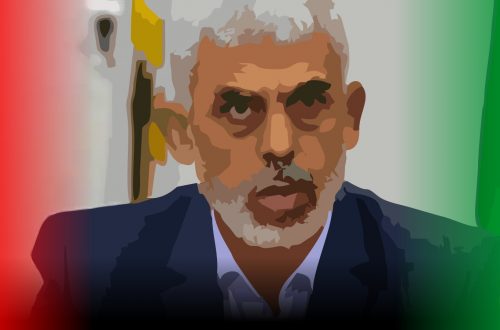This is a guest post by Matt Hill
One of the main arguments put forward in defence of Israel’s continued presence in the occupied territories is that Israeli governments have done their utmost to strike a deal to end the conflict, only for the Palestinians to rebuff them. Israel would only be too happy to give the Palestinians a state of their own, according to this claim, but their leaders’ actions at key moments prove they don’t really want one.
This is important because Israelis have absorbed the idea that, despite their leaders’ best efforts, the Palestinians aren’t interested in peace with Israel. The fact that this interpretation of history has hardened into a cast-iron national consensus helps explain why a country that clearly favours a two-state solution keeps electing leaders, like Benjamin Netanyahu, who don’t
Proponents of the claim that there’s no Palestinian ‘peace partner’ point to two occasions in recent years when Israel supposedly made gilt-edged proposals to create a state of Palestine – only for the Palestinians to walk away. The first was Ehud Barak’s offer to Yasser Arafat at the Camp David summit in July 2000; the second was Ehud Olmert’s to Mahmoud Abbas in 2008, as part of the Annapolis talks.
There’s still a lot of dispute over the circumstances and content of Olmert’s offer to Abbas (though here’s a useful discussion of Annapolis, with maps of estimated Israeli and Palestinian proposals). But there’s a growing body of writing on the Camp David talks, and a vigorous debate over what exactly took place and who was to blame for the summit’s failure. Instead of going over the various claims and counter-claims, let me quote a passage from Peter Beinart’s book The Crisis of Zionism, which caused a major stir on its publication last year for its claim that American Jews are abetting Israel’s self-destruction as a democratic state.
Describing the aftermath of Camp David, Beinart writes:
The claim that Barak had tried to give away virtually the whole West Bank but Arafat would not take it did not emerge from nowhere. Under a withering right-wing assault, and desperate for political cover as elections approached, Barak himself boasted of having exposed Arafat’s rejectionism. Clinton, eager to help Barak politically, echoed the refrain. But over the last decade, as the American Jewish establishment has turned this argument into a kind of catechism, top aides to Clinton and Barak have repudiated it. Aaron David Miller, Clinton’s deputy special Middle East coordinator, has said that both Barak and Arafat “in his own way bears some responsibility for what happened at Camp David.” Martin Indyk, Clinton’s ambassador to Israel, argues, “It was not reasonable to expect that Arafat, or any Arab leader for that matter, would agree to an end-of-conflict agreement that left sovereignty over the Haram-al-Sharif in Israeli hands forever.” Israeli officials have been even more vehement. “I was part of the ‘no-partner’ campaign, and it’s one of the things I regret most,” notes former Barak aide Tal Zilberstein. “Ten years later, there are still people who say, ‘We gave them everything at Camp David and got nothing.’ That is a flagrant lie.” Adds Eldad Yaniv, Barak’s former campaign adviser, “I was one of the people behind this false and miserable spin. It may have been justified to a certain extent to stir the Palestinians to revive the negotiations, but it’s false.”
Beinart, then, comes down firmly against the version of events, propagated by President Clinton and his team in the wake of the summit’s failure, which has since become conventional wisdom amongst Israel’s supporters.
You could dismiss this as nothing more than the biased account of a disgruntled self-hating Jew who has turned his back on Israel and embraced the propaganda of the anti-Zionist left.
Except on the cover of my hardback copy, there’s a quote from a former US government official praising Peter Beinart for writing a ‘deeply important book’, which ‘explains the roots of the current political and religious debates in Israel’ and ‘raises the tough questions that can’t be avoided’.
And the author of these lavish words? President Bill Clinton.


